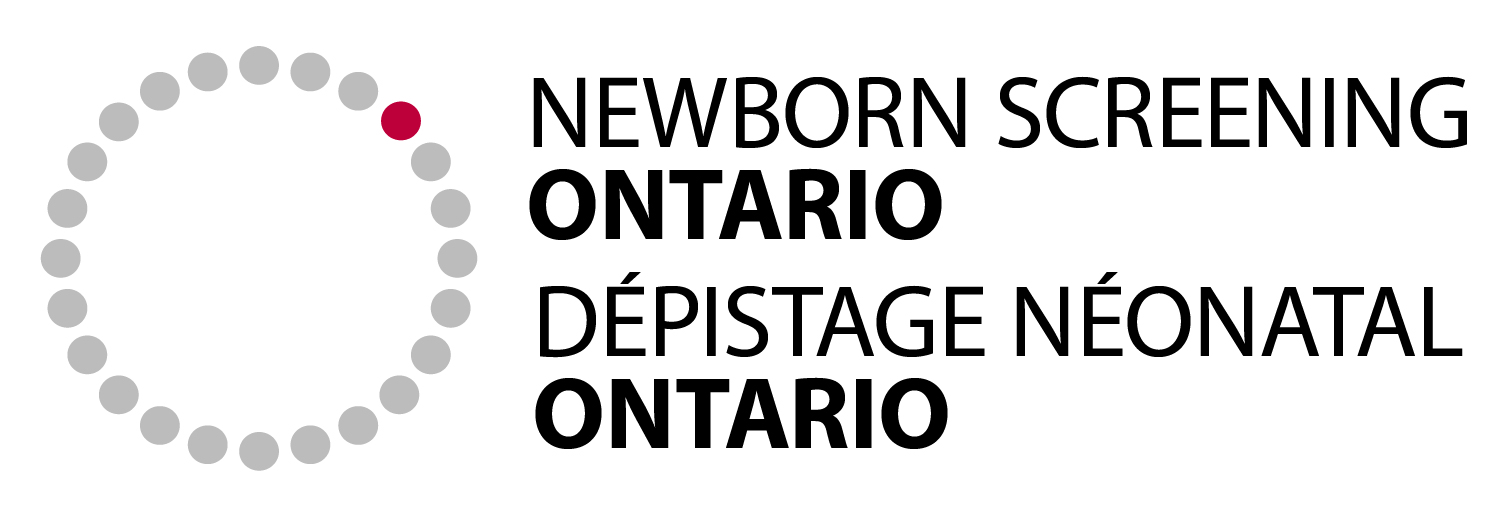Repeat Tests
Some babies need to have repeat newborn screening. The baby’s midwife or the hospital where the baby was born should organize the repeat newborn screen.
Reasons a baby may need a repeat newborn screen
1. The first newborn screening sample was “unsatisfactory”
This means that the sample could not be tested properly. A sample could be unsatisfactory because:
- the newborn screen was taken too soon, before 24 hours of age;
- the newborn screening card was not filled out properly;
- the sample was received at Newborn Screening Ontario (NSO) more than two weeks after it was taken;
- there was not enough blood to test;
- the quality of the blood sample was too low to test;
- the sample was damaged in transit;
- the sample was mislabeled.
When a baby’s sample cannot be properly tested, a repeat sample is needed as soon as possible to perform newborn screening. Please review our repeat sample parent/guardian handout for more information.
2. The baby had a packed red blood cell (PRBC) transfusion before their first newborn screening blood sample was taken
- A blood transfusion is when a person gets blood that comes from someone else. Some babies need a blood transfusion if they are sick.
- Only the type of transfusion called a packed red blood cell (PRBC) transfusion affects the newborn screening test.
- Testing for most diseases is accurate even if a baby had a transfusion before his or her newborn screening test. However, PRBC transfusions interfere with newborn screening for galactosemia and the hemoglobinopathies.
- To accurately screen for these diseases, a repeat newborn screen is needed 4-6 months after the baby’s last PRBC transfusion. For example, if a baby had transfusions at 1 day of age, 2 weeks of age, and 6 weeks of age the repeat newborn screen should be taken 4-6 months after the 6 week transfusion.
If your baby had a PRBC transfusion, please review our transfusion information sheet [274.25 KB] for more information.
3. The baby was born before 33 weeks gestational age and/or had a birth weight below 1500g
Testing for most diseases is accurate even when a baby is premature and/or very low birth weight. However, significant prematurity (born before 33 weeks gestational age) and/or very low birth weight (below 1500 grams) can affect newborn screening results for:
- Congenital hypothyroidism (CH), and
- Severe combined immune deficiency (SCID).
To accurately screen for these diseases, the baby needs a repeat newborn screen at three weeks of age. If a baby is discharged from hospital before three weeks of age, a repeat sample may be taken at the time of discharge. Or, the parents may be asked to return to the hospital for a repeat newborn screen.
If your baby was significantly premature or had a very low birth weight, please review our prematurity/low birth weight information sheet [528.08 KB] for more information.
4. Screening for critical congenital heart disease (CCHD) was incomplete
CCHD screening is performed at the bedside and results are available immediately. Rarely, some babies need to have their CCHD screen repeated because their screening was incomplete. If these babies were under hospital care and discharged home, they may need to return to the hospital to complete screening.
Contact Us
Children’s Hospital of Eastern Ontario
415 Smyth Road
Ottawa, Ontario K1H 8M8
Toll-Free: 1-877-627-8330
Local: (613) 738-3222
Fax: (613) 738-0853
